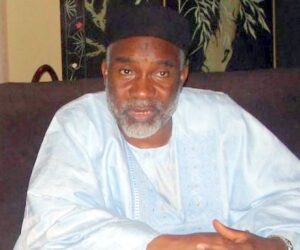Officials across Nigeria’s agriculture and development sectors have called for stronger partnerships, innovation, and youth-led solutions to build a resilient and impact-driven food system.
The call was made at the Sahel Food Systems Changemakers Conference 2025, held in Abuja on Friday with the theme “Designing for Legacy: Building Resilient and Impact-Driven Food Systems.”
The conference brought together policymakers, agripreneurs, investors, and changemakers to reflect on the sustainability of Nigeria’s food systems and the long-term impact of current interventions.
Development partners stress accountability
During the panel session on Executive Reflections, speakers highlighted the need for greater coordination between government, private sector, and development agencies to ensure lasting impact in Nigeria’s agricultural transformation.
Michael Ojo, Country Director, Global Alliance for Improved Nutrition (GAIN), emphasised that interventions must be grounded in data and people-centered design.
Mr Ojo noted that Nigeria is one of the largest producers of staple foods, yet it loses so much of it.
“Our investments must ensure that food is not just produced, but also accessible, nutritious, and safe,’ he said.
Lekan Tobe, Country Director of Heifer International, also called for a shift from siloed implementation to integrated, multi-sectoral collaboration.
Innovators push for data, trust, and resilience
In a Changemaker Spotlight session, agripreneurs and innovators shared personal stories of persistence, creativity, and the lessons learned from building businesses within Nigeria’s often unpredictable food ecosystem.
Ajoke Amusat, CEO of The Grocery Lady Agrommerce Service, Nigeria, described how her business transformed crisis into opportunity at the height of the COVID-19 lockdowns.
Ms Amusat explained that her company now works with over 2,000 smallholder farmers across northern Nigeria, training them on proper harvesting, handling, and food safety standards.
She also highlighted the growing importance of data for building resilient agribusinesses.
“Young people entering agriculture must learn data literacy, how to gather, analyse, and share information. It’s one of the most valuable skills today.”
For Tajudeen Yahaya, CEO Extension Africa, resilience starts with self-awareness and intentional growth.
Mr Yahaya advised young professionals to connect the dots in their careers and to view mentorship as an exchange of value, not dependency.
Both agripreneurs agreed that trust remains the missing link in the agricultural value chain while adding that business owners must earn farmers’ trust through consistency and honesty.
Partnerships must drive transformation
Mr Yahaya stressed that effective collaboration, not competition, will determine how fast Nigeria’s food systems can transform.
He said that there shouldn’t be a one-sided relationship between research agents and farmers as what they need is a value-chain ecosystem where everyone, farmers, aggregators, researchers, and private actors learn from one another.
He explained that Extension Africa built its model around co-creation and feedback, allowing farmers and partners to shape the services they need.
“Partnerships must go beyond formal agreements to become long-term systems of trust and shared accountability,” he added.
Design for legacy
In his welcome remarks, the Managing Partner of Sahel Consulting, Temitope Adegoroye, said programmes too often fade when funding stops and urged practitioners to build sustainability into design from day one.
Mr Adegoroye noted that true impact is not measured by how much they spend, but by what endures, by the systems, by the people, and the institutions that remain standing long after the spotlight fades.
He added that meaningful progress would depend on local ownership of agricultural systems.
“Legacy is not built by one organisation or one funder. It is built by all of us,” he said.
READ ALSO: Many Nigerians still at risk of Lead Poisoning – Environment minister
In her keynote address, the Chief Executive Officer of the ONE Campaign, Ndidi Nwuneli, warned that hunger in Nigeria is worsening, leaving millions unable to afford basic meals.
Ms Nwuneli described the fall in life expectancy from 57 to 54 years as shocking and blamed weak food systems and poor coordination across sectors.
She urged Nigerian stakeholders to be unapologetically ambitious about national capacity and to reject narratives that position the continent as chronically dependent.










